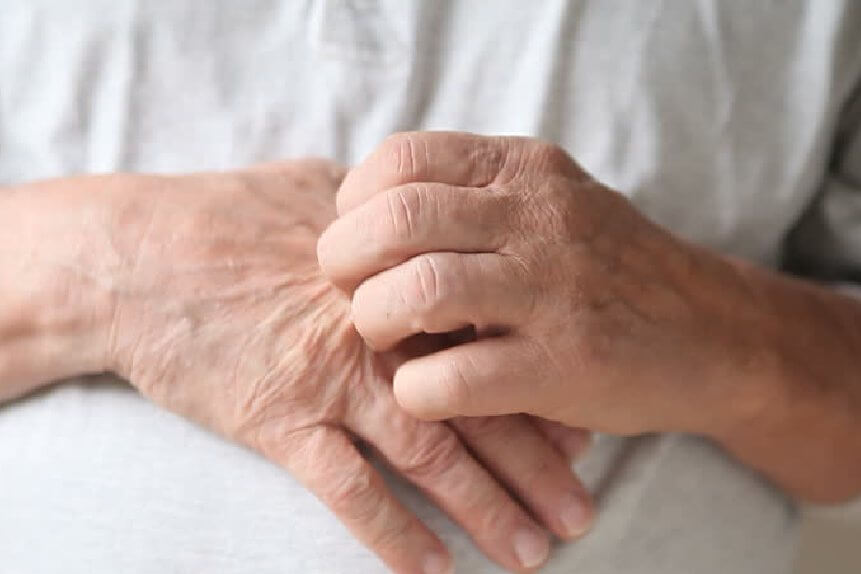
Symptoms of Eczema
- Itching and inflamed skin.
- Red and scaly areas.
- Thick and leathery patches formation.
- Dry skin.
- Rashes on scalp or cheek.
- Rashes that are bumpy in appearance.
- Itchiness that may interfere with sleeping
- Bumps that leak fluid and crust over.
Eczema Treatment in Delhi (West Delhi), India
Eczema is a skin condition in which the skin patches become inflamed, red, cracked, dry, rough, and itchy. Atopic dermatitis is the most common type of eczema. Eczema is not a contagious condition. The dermatological treatments available at Dermaworld Skin Clinics (Delhi) can help the damaged skin and also in alleviating symptoms. Continuous rubbing and scratching because of the eczema itch also lead to certain other skin infections. It also makes the skin more inflamed and itchiness worse.
The specific cause of eczema remains unknown, but it is often caused by a combination of environmental and genetic factors. Small children whose parents have an atopic disease; the risk of having eczema in them is higher.
Factors responsible to trigger eczema
- Food items such as soy products, eggs, nuts, dairy products can cause eczema flare-ups.
- Environmental factors, pollen grains, dust, mould, mites, and animal fur.
- Irritants such as shampoos, detergents, and disinfectants.
- Certain fungi, microbes, and staphylococcus bacteria.
- Stress, hormonal changes, and change in seasons (hot and cold temperature) are responsible for causing eczema.
Treatment
Our dermatologist provides with a particular or combination of treatments and medications to combat eczema and minimize its symptoms. At Dermaworld Skin Clinics, this course of action is determined after a thorough examination of the patient’s condition and diagnosis. Various medications and treatment measures that are required to treat eczema include:
- Antibiotics.
- Topical corticosteroid creams and ointments.
- Antiviral and antifungal medications.
- Antihistamines.
- Barrier repair moisturizers.
- Photo-therapy.
In many people, eczema goes away with time, and for some, it remains for a lifetime. One can prevent eczema by avoiding the factors that can cause it. Eczema can greatly affect a person's life. That's why the itching and discomfort caused by eczema require immediate medical attention, and one must consult with a dermatologist at the earliest.
A skin patch test can help to determine the underlying cause of eczema and based on the medical history, symptoms and triggering factors, the treatment, ointments, and medications are provided by a dermatologist.
Book An Appointment
ALL CLINICS CLOSED ON SUNDAY
Various methods can help people with eczema to support their skin health, such as:
- Application of skin-friendly natural moisturizers.
- Wearing cotton clothing and avoiding rough, synthetics, and tight-fitting clothes.
- Using a mild soap.
- Learning about and avoiding eczema triggers.
- Avoid skin scratching by keeping their fingernails short.
- Application of cold compress to ease itching.
- Bleach baths help to control atopic dermatitis and Staphylococcus infection.
- Taking lukewarm baths.
People with eczema have excessively dry skin. A dry climate and winter season can flare up the condition. Hence, it is always recommended to keep the skin hydrated and moisturized.
Frequently Asked Questions
Eczema is a common, chronic, and contagious skin condition that causes redness and itching in the affected area of the skin. The most common form of eczema is known as atopic dermatitis. People can experience eczema at any age, but it’s common in children. In this condition, patches of the skin appear inflamed, red, itchy, rough, scaly and cracked. Blisters formation also takes place in some cases. Eczema is not a contagious condition, but causes discomfort to the affected individual. This condition is not curable, but its symptoms can be manageable by expert consultation.
The signs and symptoms of eczema include:
- Dry and sensitive skin
- Inflamed and red skin
- Itching
- Swelling
- Crusting or oozing
- blisters formation
- Extreme itching at night
- Rough or scaly patches on the skin
- Appearance of dark color patches on the skin
- Extreme itching and scratching the skin leads to bleeding
Potential factors that maybe responsible for eczema are as follows:
- Sweat
- Stress
- Dry skin
- Detergents
- Low humidity
- Hormonal imbalance
- A family history of eczema
- Other allergic conditions like asthma or hay fever
- Consuming allergic food like some dairy products, peanuts, fish, seafood, etc
- Environmental factors like pollen, smoke, dirt, pollutants, animal fur, dust mites, etc
The following are the different types of eczema:
- Allergic contact dermatitis
- Dyshidrotic eczema
- Neurodermatitis
- Nummular eczema
- Stasis dermatitis
- Atopic dermatitis:
- Contact eczema:
- Seborrheic eczema
- Neurodermatitis
Eczema can occur to anyone at any age. Small infants and children mostly suffer from this condition. This condition is mainly associated with people who have a family history of eczema or have certain other autoimmune and allergic conditions like hay fever or asthma.
Phototherapy is one of the best treatments for correcting eczema. This is an advanced therapy that effectively keeps the skin moist and removes irritants and allergens of the skin. Treatments may vary according to the severity and type of eczema, which depends on the factors that cause eczema. Treatments like over-the-counter (OTC) medications, oral drugs, and moisturizing products help control the symptoms of eczema. Treatment for eczema prevents itching, inflammation, and the severity of the condition.
There are certain tips and changes that one can follow to manage these disease symptoms. But it is necessary to consult a dermatologist to manage this condition. The following measures can help to manage this disease, which includes:
- Skin should be hydrated
- Avoid rapid changes in temperature
- Add turmeric in diet
- Eat a healthy and nutritious diet
- Avoid junk food
- Avoid contact with allergens
- Protect the skin from harsh chemical soaps and shampoos
- Use and apply olive oil, tea tree oil, and coconut oil
- Apply aloe vera and other soothing skin products
- Consume flax seeds (as directed by the dermatologist)/li>
- Do not scratch the skin with nails
The disease like eczema can be manageable, but it cannot be cured completely. Certain lifestyle changes and treatments can help to manage this disease well. It is necessary to contact a dermatologist at an initial phase to prevent the worsening of the condition.
Eczema is a condition that causes itching and redness. The particular cell (eczema-prone skin cells) of the skin shows reaction towards anything (eczema trigger) that causes irritation, and it makes the skin inflamed to provide protection. These specialized eczema-prone skin cells, when they come in contact with the allergen, become red, itchy, and sore, and cause discomfort to the affected individual.




